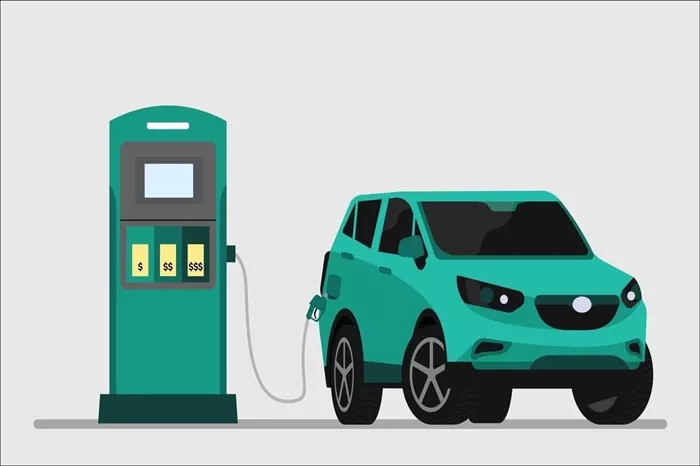With rising fuel prices and growing environmental concerns, many drivers are looking for alternatives to gasoline. This article explores various substitutes for gasoline that can be used in cars, focusing on their benefits, drawbacks, and practicality.
Introduction to Alternative Fuels
The search for alternative fuels is driven by the need to reduce dependency on gasoline, lower emissions, and promote sustainability. Several options are available, each with unique properties and applications.
1.Electric Vehicles (EVs)
How They Work
Electric vehicles (EVs) are powered by electricity stored in batteries. These batteries are recharged using electricity from the grid, which can be generated from various sources, including renewable energy.
Advantages of EVs
Zero Emissions: EVs produce no tailpipe emissions, reducing air pollution.
Lower Operating Costs: Electricity is generally cheaper than gasoline, and EVs have fewer moving parts, reducing maintenance costs.
Energy Efficiency: Electric motors are more efficient than internal combustion engines.
Disadvantages of EVs
Limited Range: Most EVs have a limited range per charge compared to gasoline cars.
Long Charging Times: Recharging can take several hours, although fast chargers can reduce this time.
Higher Initial Cost: EVs can be more expensive to purchase than traditional gasoline cars.
2.Hybrid Vehicles
How They Work
Hybrid vehicles combine a gasoline engine with an electric motor. The electric motor assists the gasoline engine, improving fuel efficiency and reducing emissions.
Advantages of Hybrids
Improved Fuel Efficiency: Hybrids use less gasoline than conventional cars.
Reduced Emissions: Lower greenhouse gas emissions compared to gasoline-only vehicles.
No Range Anxiety: The gasoline engine allows for longer trips without worrying about recharging.
Disadvantages of Hybrids
Higher Cost: Hybrids are often more expensive than gasoline cars.
Complexity: The combination of two power sources can lead to higher maintenance costs.
3.Biofuels
Types of Biofuels
Ethanol: Made from corn, sugarcane, or other plant materials.
Biodiesel: Produced from vegetable oils, animal fats, or recycled cooking grease.
Advantages of Biofuels
Renewable: Biofuels are made from renewable resources.
Reduced Emissions: Lower greenhouse gas emissions compared to gasoline.
Compatibility: Many biofuels can be used in existing gasoline engines with little or no modification.
Disadvantages of Biofuels
Energy Density: Biofuels typically have lower energy content than gasoline.
Food vs. Fuel Debate: Using crops for fuel can impact food supply and prices.
Production Costs: Biofuel production can be more expensive than extracting and refining gasoline.
4.Compressed Natural Gas (CNG)
How It Works
Compressed natural gas (CNG) is stored in high-pressure tanks and used to fuel internal combustion engines designed or modified for CNG use.
Advantages of CNG
Lower Emissions: CNG produces fewer pollutants and greenhouse gases than gasoline.
Cost-Effective: Natural gas is often cheaper than gasoline.
Abundant Supply: Large reserves of natural gas are available.
Disadvantages of CNG
Storage: Requires high-pressure tanks, which can be bulky and reduce vehicle storage space.
Limited Infrastructure: Fewer CNG refueling stations compared to gasoline stations.
Conversion Costs: Converting a gasoline vehicle to run on CNG can be expensive.
5.Hydrogen Fuel Cells
How They Work
Hydrogen fuel cell vehicles generate electricity through a chemical reaction between hydrogen and oxygen, producing only water vapor as a byproduct.
Advantages of Hydrogen Fuel Cells
Zero Emissions: Produce no tailpipe emissions other than water vapor.
High Efficiency: More efficient than internal combustion engines.
Quick Refueling: Hydrogen refueling times are comparable to gasoline refueling.
Disadvantages of Hydrogen Fuel Cells
Infrastructure: Limited availability of hydrogen refueling stations.
Production Costs: Hydrogen production and fuel cell technology are expensive.
Storage and Transport: Hydrogen is difficult to store and transport safely.
See also: Diesel Vs Gasoline: Which Is Cleaner?
6.Propane (Liquefied Petroleum Gas, LPG)
How It Works
Propane is stored as a liquid in pressurized tanks and used to fuel internal combustion engines designed or modified for propane use.
Advantages of Propane
Lower Emissions: Propane produces fewer emissions than gasoline.
Cost-Effective: Generally cheaper than gasoline.
Availability: Widely available in many regions.
Disadvantages of Propane
Energy Density: Lower energy content than gasoline, leading to reduced mileage.
Storage: Requires pressurized tanks, which can reduce vehicle storage space.
Conversion Costs: Converting a gasoline vehicle to run on propane can be expensive.
7.Alcohol Fuels
Types of Alcohol Fuels
Methanol: Produced from natural gas, coal, or biomass.
Ethanol: Made from corn, sugarcane, or other plant materials (as mentioned earlier).
Advantages of Alcohol Fuels
Renewable: Can be produced from renewable resources.
Reduced Emissions: Lower emissions compared to gasoline.
Compatibility: Can be used in flexible-fuel vehicles designed to run on gasoline-ethanol blends.
Disadvantages of Alcohol Fuels
Energy Density: Lower energy content than gasoline.
Corrosiveness: Alcohol fuels can be corrosive to some engine components.
Production Costs: Can be more expensive to produce than gasoline.
8.Synthetic Fuels
How They Work
Synthetic fuels are created from chemical processes using raw materials such as coal, natural gas, or biomass. They can be designed to mimic gasoline, diesel, or jet fuel.
Advantages of Synthetic Fuels
Customizable: Can be tailored to meet specific performance and environmental criteria.
Reduced Emissions: Potentially lower emissions compared to conventional fuels.
Compatibility: Can be used in existing engines with little or no modification.
Disadvantages of Synthetic Fuels
Production Costs: Expensive to produce compared to extracting and refining gasoline.
Energy Intensity: Production processes can be energy-intensive.
Conclusion
Exploring alternatives to gasoline is crucial for reducing environmental impact and dependency on fossil fuels. Each alternative fuel has its own set of advantages and disadvantages, and the best choice depends on individual needs, availability, and infrastructure. As technology advances, these alternatives will become more viable and accessible, paving the way for a more sustainable future.
Choosing the right alternative fuel involves considering factors such as cost, availability, vehicle compatibility, and environmental impact. Whether opting for electric vehicles, biofuels, CNG, hydrogen fuel cells, propane, alcohol fuels, or synthetic fuels, the transition away from gasoline is a step towards a cleaner and more sustainable world.
Related topics:
What Fossil Fuel Is Gasoline Made From?

